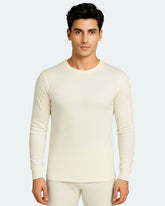Making Sustainable Choices: Polyester vs. Natural Fibres
Fashion trends evolve with astonishing swiftness. Our clothing choices impact more than appearances; each outfit reflects our values. The fabric we choose be it polyester or natural fibre indelibly marks our ecological footprint. Consider this staggering fact: 5.25 trillion plastic particles float in our oceans. These particles weigh over 270,000 tons. Microplastics infiltrate marine life, ultimately entering our food chain. Thus, the question arises: how can we harmonise style with sustainability?
In light of this pressing issue, we must examine our fabric selections. This blog will delve into why natural fibres reign supreme. They unequivocally eclipse synthetic substitutes like polyester. Our objective is to transform passive awareness into proactive engagement. By the end, you will emerge equipped with insights. These insights will empower you to make eco-conscious decisions that reflect your values.
Why Choose Natural Fibres Over Synthetic Alternatives?

Let’s explore the compelling reasons to choose natural fibres over synthetic alternatives.
Material Source
Natural Fibres: Fabrics like cotton, Merino wool, and bamboo originate from renewable sources. They epitomise sustainability and deliver unmatched comfort. These fibres not only elevate aesthetic allure but also embody a steadfast commitment to responsible fashion practices.
Polyester: Polyester, a synthetic construct, emerges as a byproduct of the oil industry. Fundamentally plastic, it is fabricated by extruding petrochemicals into delicate filaments. Consequently, these fabrics prove detrimental to the environment, heavily relying on non-renewable resources that undermine ecological integrity.
Biodegradability
Natural Fibres: These exquisite fabrics decompose naturally, enriching the soil. Their intrinsic capacity for disintegration guarantees a minimal long-term environmental footprint. This aligns seamlessly with eco-conscious values and sustainable practices.
When shopping, it’s essential to find value-aligned brands. Sustainability should not be an afterthought but an innate one. Brands attuned to these principles understand that sustainability is not an added feature, but a natural part of their design process. Kosha, for instance, embodies this ethos with care. They seamlessly incorporate eco-friendly practices into every stage. From material sourcing to finished natural fabric garments, sustainability is key. This thoughtful approach merges style with responsible choices. Your wardrobe can now reflect both elegance and sustainability.
Polyester: Synthetic fibres, notably polyester, endure for centuries without biodegrading. This prolonged persistence markedly exacerbates microplastic pollution. As these fibres shed during laundering, they infiltrate aquatic ecosystems, adversely impacting biodiversity and permeating the food chain.
Moisture Management
Natural Fibres: Fabrics such as bamboo and Merino wool excel in moisture management. They efficiently wick away perspiration, promoting dryness and comfort. Their remarkable breathability ensures ease during vigorous activities. This effectively regulates body temperature and enhances overall performance.
Natural fibres offer excellent moisture control, but finding brands that harness these qualities with sustainability can be difficult. Kosha, however, blends bamboo and Merino wool to perfection. Our designs transform these fibres into outdoor-ready essentials. Each garment balances sustainability and high performance. This elegant fusion guarantees comfort, breathability, and eco-conscious refinement in every layer.
Polyester: Polyester, being plastic-based, inherently traps moisture against the skin. This propensity to retain sweat engenders discomfort and elevated heat. Consequently, it hinders the body’s natural thermoregulation in sweltering and frigid environments.
Odour Resistance
Natural Fibres: Merino wool exhibits extraordinary natural odour-resistant properties. It effectively inhibits bacterial proliferation, enhancing fabric longevity. This remarkable trait extends wearability between washes, conserving precious water resources. Consequently, it significantly minimises environmental impact.
Polyester: Polyester, due to its synthetic composition, retains unpleasant odours. This inherent quality necessitates frequent laundering, escalating resource consumption. Moreover, it diminishes the fabric’s longevity through relentless washing cycles.
Breathability and Temperature Regulation
Natural Fibres: Natural fibres have a unique hollow structure that enhances air circulation, making them ideal for regulating body temperature. Choosing the right materials for your clothing is essential for effective temperature control. Garments made from natural fibres help maintain coolness in the summer and warmth in the winter, adeptly regulating body temperature and preventing discomfort from overheating or chills.
Polyester: The non-breathable characteristics of polyester trap heat and moisture. This entrapment results in discomfort across various environments. Consequently, it significantly impairs the body’s innate ability to sustain a stable temperature.
Skin Sensitivities and Comfort.
Skin Comfort
Natural Fibers: Natural fibres feel gentle against the skin. They wick away moisture, keeping you dry and comfortable all day. Their breathability allows air to circulate freely. This provides a delightful wearing experience, even for the most sensitive skin types.
We all deserve to feel comfortable in our clothes. This is the foremost principle of style and fashion. It is essential to buy from brands that prioritise both comfort and sustainability. Choosing garments that nurture our skin enhances our overall experience. Kosha exemplifies this ethos by offering a natural fibre collection. Their designs ensure comfort without compromising style, allowing you to feel confident and at ease.
Polyester: In contrast, polyester tends to trap moisture. This can exacerbate existing skin issues. This synthetic fabric is not ideal for those with sensitivities. It often leads to discomfort and irritation. Such drawbacks can greatly detract from the overall wearing experience.
Price
Natural Fibres: While often perceived as more costly, natural fibres epitomise unparalleled quality and sustainability. Their enduring comfort, coupled with exceptional durability, transforms them into a judicious investment. Over time, their myriad environmental benefits significantly enhance their overall value.
Polyester: Polyester, by contrast, boasts remarkable affordability, originating from oil byproducts. Brands frequently gravitate towards this economical choice; however, the long-term ecological ramifications far eclipse any initial financial advantages. This reliance raises profound sustainability concerns that warrant careful consideration.
From Awareness to Action: A Guide to Sustainable Wardrobe

In our journey toward sustainability, building an eco-friendly wardrobe is essential. Discover actionable tips that will empower you to make mindful fashion choices while reflecting your unique style.
Invest in Timeless Staples
Quality over quantity unequivocally. Curate a wardrobe of enduring elegance. Think impeccable tailoring, timeless cuts, and durable fabrics that transcend passing trends. These pieces are immune to fashion's whims, ensuring your wardrobe remains perpetually refined.
Opt for Natural Fibres
Embrace the unparalleled luxury of nature’s finest—organic cotton, linen, hemp, and wool. These biodegradable marvels not only offer breathability but elevate comfort to new heights. Cast aside the synthetic mediocrity of polyester and its artificial discomfort. In the realm of refined elegance, nature always reigns supreme.
Second-Hand and Vintage
Consider shopping for pre-loved clothing reduces the demand for new textiles. Thrift stores, consignment shops, and online vintage boutiques offer unique finds. By choosing second-hand, you elevate your wardrobe with distinctive pieces. You also champion sustainability. This ensures garments are cherished rather than discarded into landfills.
Repair, Don’t Replace
Embrace sustainability by repairing instead of replacing. Discarding garments with minor wear and tear is wasteful. Consider mending or upcycling your cherished pieces. Simple fixes can extend the life of your clothes. Sew on a loose button or patch a tear. Each act of repair breathes new life into your wardrobe. It embodies a commitment to sustainable fashion. At Kosha, we believe in the longevity of our products and provide lifetime repairs to ensure your garments serve you for years to come.
Mindful Laundering
Embrace the philosophy of mindful laundering. Wash garments only when necessary, utilising cold water to minimise energy consumption. Opt for air drying instead of relying on a dryer. This simple choice preserves fabric quality and prolongs the life of your cherished pieces. Moreover, it significantly reduces your wardrobe’s environmental footprint. With every thoughtful decision, you elevate your commitment to sustainable fashion.
Conclusion:
The world of fashion presents a crucial crossroads today. Choosing natural fibres such as cotton, Merino wool, and bamboo, exemplifies sustainability and also supports ecosystems. They excel in breathability, temperature regulation, and skin comfort, catering to diverse needs while minimising environmental impact. In stark contrast, polyester, derived from petrochemicals, inflicts significant harm on the environment, contributing to microplastic pollution and ecological degradation.
However, in this tempestuous realm of fast fashion, discovering brands that truly harness the myriad benefits of natural fibres proves to be an arduous quest. This is precisely where Kosha shines. Kosha expertly combines the exceptional qualities of natural fibres with innovative design. Their garments are functional and eco-conscious. Each piece reflects a steadfast commitment to sustainability. This ensures you remain comfortable and stylish in any setting. By choosing Kosha, you embrace a wardrobe that embodies responsible fashion. Your choices align seamlessly with your values and lifestyle.








